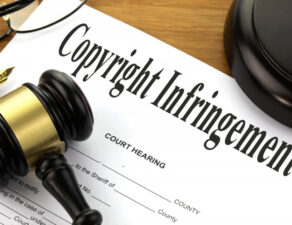Copyright Registration- Individual or Corporation
©
Should I apply for a registered copyright as a corporation or an individual?
This depends on your age or more specifically when you will die. When you have 25 years left to live, the two copyright terms are the same. The benefit of one over the other has a balancing point for men when they are about 55 years old and for women when they are about 60 years old (based on the current average age of death statistics).
- If you personally register a copyright, it will expire 70 years after you die.
- If a company registers the copyright, it will expire 95 years from publication or 120 years from creation, whichever is shorter.
One strategy, if you want a longer copyright term, is to involve a younger person as a co-author (they need to contribute significant content.) If two authors are listed then the copyright term is 70 years after the death of the last author to die.
If your copyright is expected to produce money for you in royalties for more than 10 years, then this property right (copyright) should be considered in your estate planning. Copyrights may be passed down to your heirs. Even unpublished works can sometimes bring significant value to heirs, but if the planning is not done properly, then that value may be missed.
Basic Copyright Information
What is a copyright?
A copyright is a form of protection for the authors of “original works of authorship” In the US, Copyright protection exists automatically from the moment the original work of authorship is created.
What works are protected by copyright?
A copyright protects literary, dramatic, musical, and artistic works, such as poetry, novels, movies, songs, computer software, and architecture.
When is my work protected?
Your work is under copyright protection the moment it is created and fixed in a tangible form that it is perceptible either directly or with the aid of a machine or device.
Do I have to register with the United States Copyright Office to be protected?
No. In general, registration is voluntary. Copyright exists from the moment the work is created. You will have to register, however, if you wish to bring a lawsuit for infringement of a U.S. work.
Why register a copyright if copyrights are automatic. Why would anyone incur the cost to register their copyright with the U.S. Copyright Office?
The answer is simple. Registration greatly enhances the value of the copyrights. There are several ways registration enhances the copyrights’ value.
The Benefits of Copyright Registration
Public Record of Ownership–
Ownership is often the issue in a dispute. The copyright owner has the burden of proof. Registering a copyright establishes a claim to ownership. A public record of ownership can also deter potential infringers.
Presumption of Ownership-
When a copyright is registered before, or within 5 years of publication, ownership is presumed and anyone seeking to challenge ownership will then have the burden of proof.
The Ability to Enforce Copyrights by Filing a Copyright Infringement Lawsuit-
A copyright owner cannot file a lawsuit to enforce or protect their copyright until the U.S. Copyright Office has issued a registration. A copyright owner will be in a stronger position if they can file a lawsuit immediately rather than wait months for the copyright registration to issue. Also, there are significant financial benefits as indicated below
Eligibility for Statutory Damages, Attorney Fees, and Costs of Suit-
When copyrights are registered prior to, or within 3 months of publication, a copyright owner is eligible for statutory damages. A copyright owner can recover a certain amount for each work infringed. This is especially valuable when actual damages are hard to prove. Other benefits can include attorney costs, costs of the suit, etc. These additional costs can provide leverage to end a lawsuit early.
Protection Against Importation of Infringing Works-
The registered owner of a copyright is eligible to participate in CBP (U.S. Customs and Border Protection) program. CBP will seize imported goods that violate the copyright owner’s IP rights in the US.



